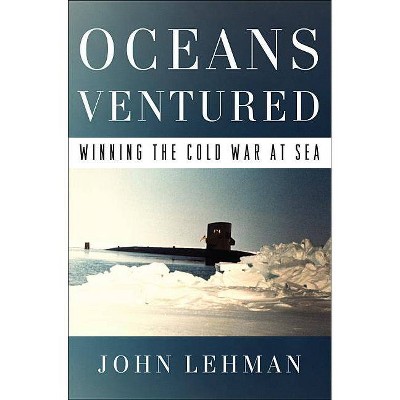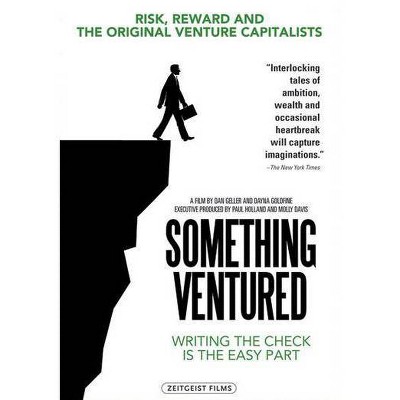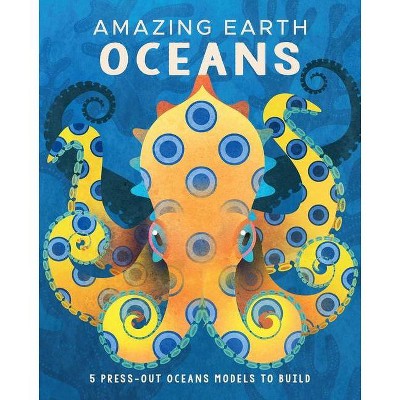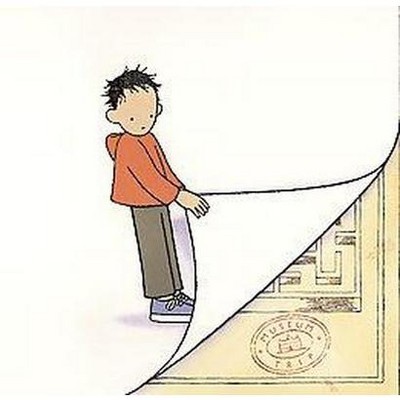Oceans Ventured - by John Lehman (Hardcover)

Similar Products
Products of same category from the store
AllProduct info
<p/><br></br><p><b> About the Book </b></p></br></br>A thrilling story of the Cold War, told by a former navy secretary on the basis of recently declassified documents.<p/><br></br><p><b> Book Synopsis </b></p></br></br><p>When Ronald Reagan took office in January 1981, the United States and NATO were losing the Cold War. The USSR had superiority in conventional weapons and manpower in Europe, and had embarked on a massive program to gain naval preeminence. But Reagan already had a plan to end the Cold War without armed conflict.</p><p>Reagan led a bipartisan Congress to restore American command of the seas by building the navy back to six hundred major ships and fifteen aircraft carriers. He adopted a bold new strategy to deploy the growing fleet to northern waters around the periphery of the Soviet Union and demonstrate that the NATO fleet could sink Soviet submarines, defeat Soviet bomber and missile forces, and strike aggressively deep into the Soviet homeland if the USSR attacked NATO in Central Europe. New technology in radars, sensors, and electronic warfare made ghosts of American submarines and surface fleets. The United States proved that it could effectively operate carriers and aircraft in the ice and storms of Arctic waters, which no other navy had attempted. The Soviets, suffocated by this naval strategy, were forced to bankrupt their economy trying to keep pace. Shortly thereafter the Berlin Wall fell, and the USSR disbanded.</p><p>In <em>Oceans Ventured</em>, John Lehman reveals for the first time the untold story of the naval operations that played a major role in winning the Cold War.</p><p/><br></br><p><b> Review Quotes </b></p></br></br><br>In 1981, in the end game of the Cold War, the Soviet Union woke up one day to find the United States Navy on its doorstep, ready to strike. The man behind this stunning show of sea power was the Secretary of the Navy, John Lehman. A modern-day Teddy Roosevelt, Lehman not only sent the fleet into enemy waters, he sailed with it--flying off carriers in the back seat of a warplane. A fascinating, eye-opening tale of <em>l'audace! L'audace! Toujours, l'audace!</em>--Evan Thomas, author of The War Lovers, John Paul Jones, and Sea of Thunder<br><br>John Lehman has given us another naval classic in <em>Oceans Ventured</em>--the incredible story of the Navy's central role in winning the Cold War. Based upon meticulous research and newly declassified documents, Lehman's fresh account has the grip of a well-crafted adventure novel. His perspective is uniquely authoritative: he was a key architect of American strategy, a crucial figure in its execution, and an active participant as a qualified naval aviator. A must-read.--Senator John McCain<br><br>Lehman's book is...a validation of the axiom that if you want peace, prepare for war.--George Will "National Review"<br><br>This book is solid history of a resurgent Navy...Lehman's words are essential to understanding the Navy's role and performance during the Cold War and its contribution to the downfall of the Soviet Union.-- "SEAPOWER Magazine"<br><br>This book should be acquired by the tens of thousands of my fellow Sailors who served at sea during [the late Cold War]... Lehman makes a valuable contribution to the yet-to-be-written definitive account of this era. <em>Oceans Ventured</em> also serves as an important reminder of the importance of sea power in the contemporary world.--David F. Winkler, Ph. D. "Naval Historical Foundation"<br><br>Everything an important book should be. It is lean yet detailed, dramatic yet without hyperbole, and the lesson it teaches is something the public and the entire Washington policy community should internalize: that the projection of military power, done responsibly, leads to the projection of a nation's values. And when it comes to military power, the greatest weapon the United States had during the Cold War and today is its Navy.--Robert D. Kaplan, author of The Revenge of Geography and The Return of Marco Polo's World<br>
Price History
Price Archive shows prices from various stores, lets you see history and find the cheapest. There is no actual sale on the website. For all support, inquiry and suggestion messagescommunication@pricearchive.us




















